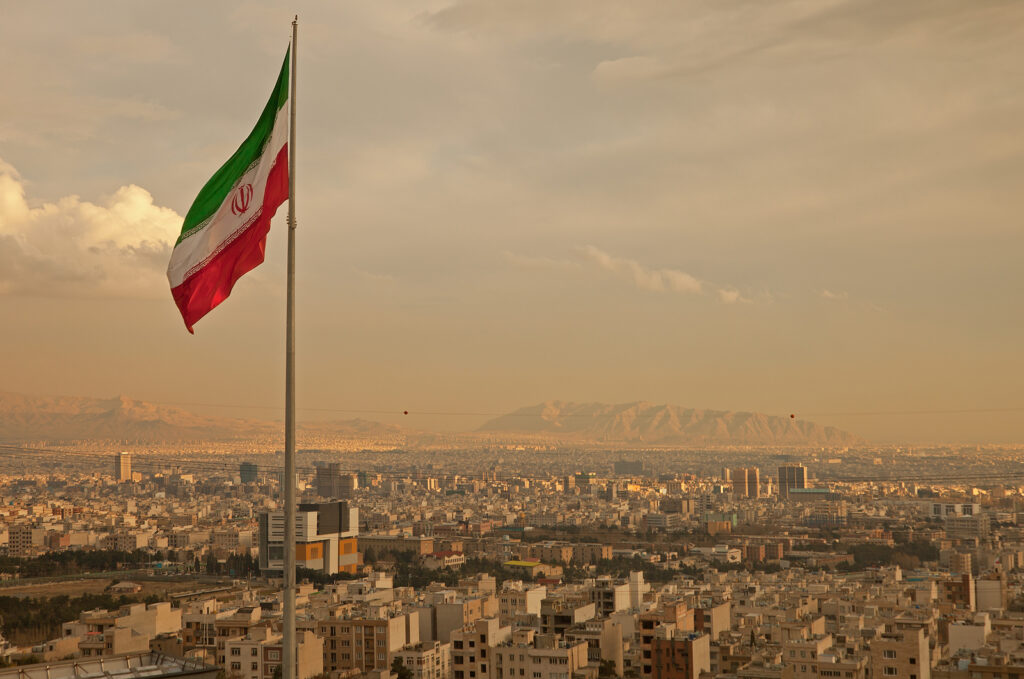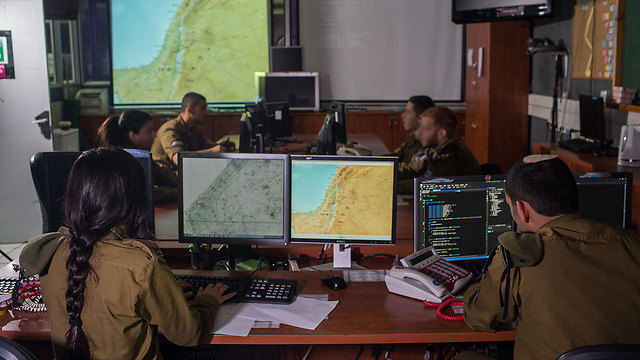It is entirely unsurprising that it is the IDF who is calling on the residents of northern Gaza to move southwards so that they are not harmed by the war efforts. Simultaneously, Hamas is trying to prevent the Gazans from moving and the UN is – as ever – also crying foul. In the face of this pushback, it is vital that Israel does not waver in this important effort.
The IDF announcement following the beginning of the fighting stated that the population who fled Gaza can return to the territory only when they give the word. It is vital, however, that Israel prevents such a sweeping return from occurring. Only a small number of those driven out should be allowed to return to Gaza, and of them, only those truly intent on a peaceful coexistence.
In this time of turmoil and violence, we must maintain our moral clarity, for it is that that will enable us to win the current campaign, as well as aid us in determining whether we wish to maintain the unstable status quo which led to the Simchat Torah Massacre, or choose to shape a safer and more stable state of affairs within the region.
If one were to summarize the central moral principles by which our conduct in the current, complex situation ought to abide by, they would say such:
1. Mass killings unrelated to the defeat of the enemy are morally unconscionable.
2. Allowing a population sympathetic to a terrorist regime to remain within our country or next to our borders is an immoral and untenable policy. Those who cannot make peace with our existence – for whom our blood is like water – have no right to continue inhabiting this land.
3. The transport of the civilian population of Gaza to another location so that they may continue their lives elsewhere, through the promotion of migration and the discouraging of a return to Gaza, is in fact the moral course of action in this scenario.
Allow me to elaborate.
1. An oversimplified conception of justice, and the very justified feelings of vengeance amongst Israelis have led to talk of simply killing the residents of Gaza. While it is reasonable for those harmed by this conflict to express the depth of their shock and pain, this is an empty, dangerous statement. The elimination of a large civilian population, despite its terrorist ties must not be allowed. Some two million people live in the Gaza Strip, including innumerable babies, children, and elderly, and necessarily also many people who retain the possibility of being good neighbours, under different cultural circumstances.
The avoidance of systematic killing of civilian populations is a necessary moral understanding towards which humanity has progressed, as part of a long process, beginning with Biblical limitations on warfare and the development of a range of laws governing war, most of which are indeed proper and vital. Those who equate “Jewish morality” with straightforward application of the brand of warfare commonly accepted in the Biblical era are both foolish and morally depraved: many of the horrors of Hamas visited upon the holy residents of the Gaza Perimeter – those same actions which drive us to view them as animals rather than people – were the norm for warring parties during the Biblical era. Those who wish to return to such ancient and barbaric modes of thinking are welcome to join the Gazans, not the IDF.
2. However, simply returning the Gazan population after the end of the current conflict is also an immoral act—one which would continue the reckless policy of nonengagement Israel has conducted over the last few decades.
Similarly, those who would share their lives with those who wish to end them – indeed, those who wait at night to ambush Jews along the road – should not be shocked when these violent objectives succeed every so often. And those who, as a matter of policy, are willing to share the area in which they live with those who actively seek their death must also bear moral responsibility for the latter, for they have decided their own fate. For a generation, we have allowed ourselves to become reconciled to the fact that a culture exists alongside us which does not see value in the lives of (Israeli) Jews. Indeed, it places paramount value on ending those lives, teaching each new generation to hate us with a murderous rage. This is not just a matter of Hamas specifically, and neither will it go away if the Palestinian Authority is crowned ruler of the Strip by Israeli bayonets. It is our moral responsibility to stop this whole ideologically backwards business.
Moreover, if Palestinians face no significant long-term effects for their violent attack, along with the countless others they’ve launched over time, it undermines the pursuit of justice. This is the primary aim of the decisive moral actions expected of the IDF. Ensuring justice or enacting consequences is not just about emotions; it is essential for strategy. Israel’s ability to deter its adversaries has been seriously compromised. To reestablish this deterrent power, there must be strong and transformative repercussions for those who oppose us. A mere strong response to Hamas won’t be enough. Without reinstating a strong stance of deterrence, Israel’s economy, political stability, and security could all start to weaken. And what has happened so far might only be the beginning.
Since the end of World War II, the proud German city of Danzig has become the Polish city of Gdańsk. And that is okay, and right, and moral. If Gaza is to be rebuilt, it must not be rebuilt as a city of Hamas, Fatah, and Jihad, but as an Israeli city (and like many cities in Israel, Jews and Arabs will be able to live there in coexistence), a city open to the sea and to life, instead of a fortress sanctifying death.
3. Finally, we must address the future of the Palestinian population. The transfer or exchange of populations is a common strategy for conflict-resolution. This is distinctly different practice from the crime known as “ethnic cleansing,” which is the elimination of a population of a certain ethnic origin from a particular region. A number of peaceful population transfers were carried out during the twentieth century, greatly aiding in the establishment of international prosperity and stability. And while the Treaty of Rome states that “forced transfer of population” is a crime, the residents of Gaza themselves are already fleeing the area as a result of the ongoing military action. If we wish to fully destroy the societal infrastructure perpetuated by Hamas, Gaza’s infrastructure must be dealt a significant blow. This level of destruction, though distinctly necessary under the circumstances, will still require a long time to begin to rebuild and reabsorb residents. In other words, the Gazan population which is not taking part in the fighting will already assuredly be spending an extended period of time outside the borders of Gaza. The question remains: Are we obligated to bring them back? Should Israel be tasked with reconstituting what is essentially a ticking time bomb onto its doorstep once again?
Moreover, since this is a population that already retains refugee status (from 1948), its orderly transfer would allow it to become established in absorbing countries, which can and must be considered the rehabilitation of their refugee status. This is a population which has chosen for generations to see itself not as “Gazan” but as“Palestinian,” tied to settlements within the Green Line that were abandoned in 1948. This group’s removal from Gaza is therefore not any sort of exile, but rather the completion of the process which began decades ago in the War of Independence. Around the time of the War of Independence, hundreds of thousands of Jews left Arab countries as refugees, in similar and perhaps even greater numbers than the Arab residents in the Land of Israel who were uprooted. An effective exchange of populations took place therein, one which was not completed: the Palestinian refugee population – as opposed to the Jewish refugees from Arab countries – continue to have their status intentionally maintained, making Gaza into an impoverished and overpopulated strip of land, full of hostility and extremism.
In order to put a stop to this unending saga of pain – one which undermines the legitimacy of Israel’s existence – the organization of UNRWA, which propagates the refugee narrative, and which has prevented the rehabilitation of the refugees for over seventy years, must be dismantled. This is a simple action, which requires only a strong Israeli will and the courage to demand change: the organization receives a renewed mandate from the UN every three years, and is primarily funded by the United States, Canada, Britain, and the European Union, all of whom stand with Israel in the current conflict.
The desire of the Gazan population to emigrate from their current location has been great for many years now, but the gates of surrounding nations were closed and their options few. Israel should therefore encourage the international community to establish open and varied pathways for the migration of a population that will find itself already uprooted due to the war, in addition to the already-posited possibility of large-scale absorption in Egypt, and it should declare in advance that only a limited number of those uprooted can return to Gaza, and following a careful examination of their willingness to live in peace with Israel.
At any rate, Israel should exploit the war-driven flight of the Gazans and do whatever is possible to delay their return—such that only those who show a strong desire, deep Gazan roots, and genuine intention to live alongside Jews can return, some time in the future, to a new Gaza.
The content of this article is a translated version of its initial Hebrew publication. it was first published in the hebrew version of Hashiloach Frontlines and is available on the Hebrew website here: https://hashiloach.org.il/theology-for-adults/
This article was translated by Avi Woolf and edited by Gavriella Cohen.








